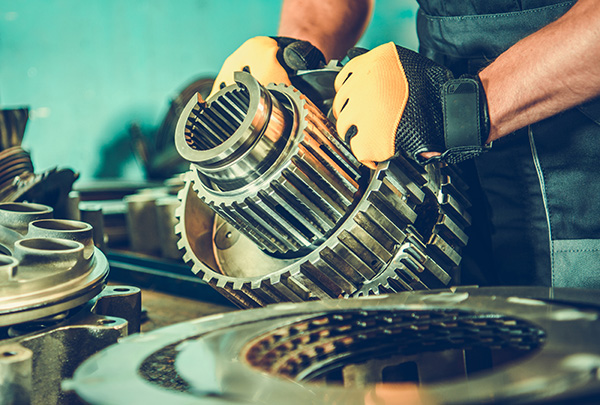
If your vehicle’s transmission shows signs of wear, a transmission rebuild may be necessary to keep your car running. While complex, a transmission rebuild is a cost-effective alternative to a complete replacement. So, what exactly goes into rebuilding a transmission? We will share the essential steps involved in the process and why entrusting this task to a professional is necessary.
What is a Transmission Rebuild
A transmission rebuild involves taking apart the transmission, inspecting each component, cleaning or replacing worn-out parts, and then reassembling it to factory specifications. It’s a labor-intensive process but often the best way to extend the life of your transmission without having to invest in an entirely new one.
Key Signs That Your Transmission Needs Rebuilding
Wondering if your transmission needs a rebuild? Here are a few signs to look out for:
- Slipping Gears: If your car slips out of gear while driving, it could indicate worn-out components.
- Strange Noises: Whining, humming, or clunking sounds while shifting gears are red flags.
- Fluid Leaks: Transmission fluid leaks under your car can cause low fluid levels, leading to overheating and wear.
- Delayed or Rough Shifting: If shifting between gears feels jerky or takes too long, it’s time for a check-up.
Once these issues are identified, it’s time to consider a rebuild. Let’s explore the steps involved in the process.
1. Diagnosing the Problem
The first step is a thorough diagnosis. A certified technician will inspect the transmission using specialized tools, often connecting the car to a computer system to retrieve error codes. These diagnostic tests help pinpoint where the issues lie, whether it's a single worn-out part or more extensive damage throughout the system.
After the diagnosis, the technician will advise whether a transmission rebuild is the best solution or if a less invasive repair might suffice.
2. Removing the Transmission
Once it's determined that a rebuild is necessary, the next step is removing the transmission from the vehicle. This is a labor-intensive process that involves lifting the car and disconnecting the transmission from the engine, drivetrain, and electrical systems. It requires precision to ensure no other components are damaged during the removal.
3. Disassembly and Inspection
With the transmission out of the car, the technician will begin disassembling it piece by piece. Each part is carefully laid out and inspected for signs of wear, damage, or failure. Worn or damaged parts will either be cleaned or replaced entirely, depending on the condition.
Some components that are commonly replaced include:
- Gaskets and seals
- Clutch plates
- Bearings
- Bands
4. Cleaning and Replacing Parts
Once the parts have been inspected, the technician will thoroughly clean them. This step is essential for removing debris, dirt, and old transmission fluid that could affect the performance of the rebuilt transmission. After cleaning, the parts that were deemed too worn or damaged during inspection are replaced with new or refurbished components.
5. Reassembling the Transmission
With everything cleaned and all worn parts replaced, the next step is reassembly. This is a meticulous process that requires placing each component back in its proper position. The technician will follow the manufacturer’s specifications to ensure the transmission is reassembled correctly.
Seals, gaskets, and O-rings are replaced to prevent future leaks, and the technician ensures everything is tightened and fitted securely.
6. Installing the Rebuilt Transmission
Once the transmission has been rebuilt, it is reinstalled into the vehicle. This process involves reconnecting the transmission to the engine, driveshaft, and electrical components. The technician will also refill the transmission with new fluid, which is vital for proper lubrication and cooling.
7. Testing and Adjustments
The final step in the rebuild process is testing the rebuilt transmission. The technician will start the car and test drive it to ensure the transmission shifts properly and operates smoothly. They’ll check for any potential issues, such as leaks, improper shifting, or strange noises. If any problems are detected, adjustments are made to fine-tune the transmission’s performance.
Why Choose a Transmission Rebuild
While a transmission rebuild is labor-intensive, it’s often more affordable than buying a new transmission. It also extends the life of your current transmission and restores it to near-new condition. It’s also environmentally friendly, as it reuses many of the original parts, reducing waste.
Looking for trusted transmission repair services? Contact Admiral Tire And Auto of Edgewater today for expert rebuilds, inspections, and maintenance. We’ll get your vehicle back in top shape!